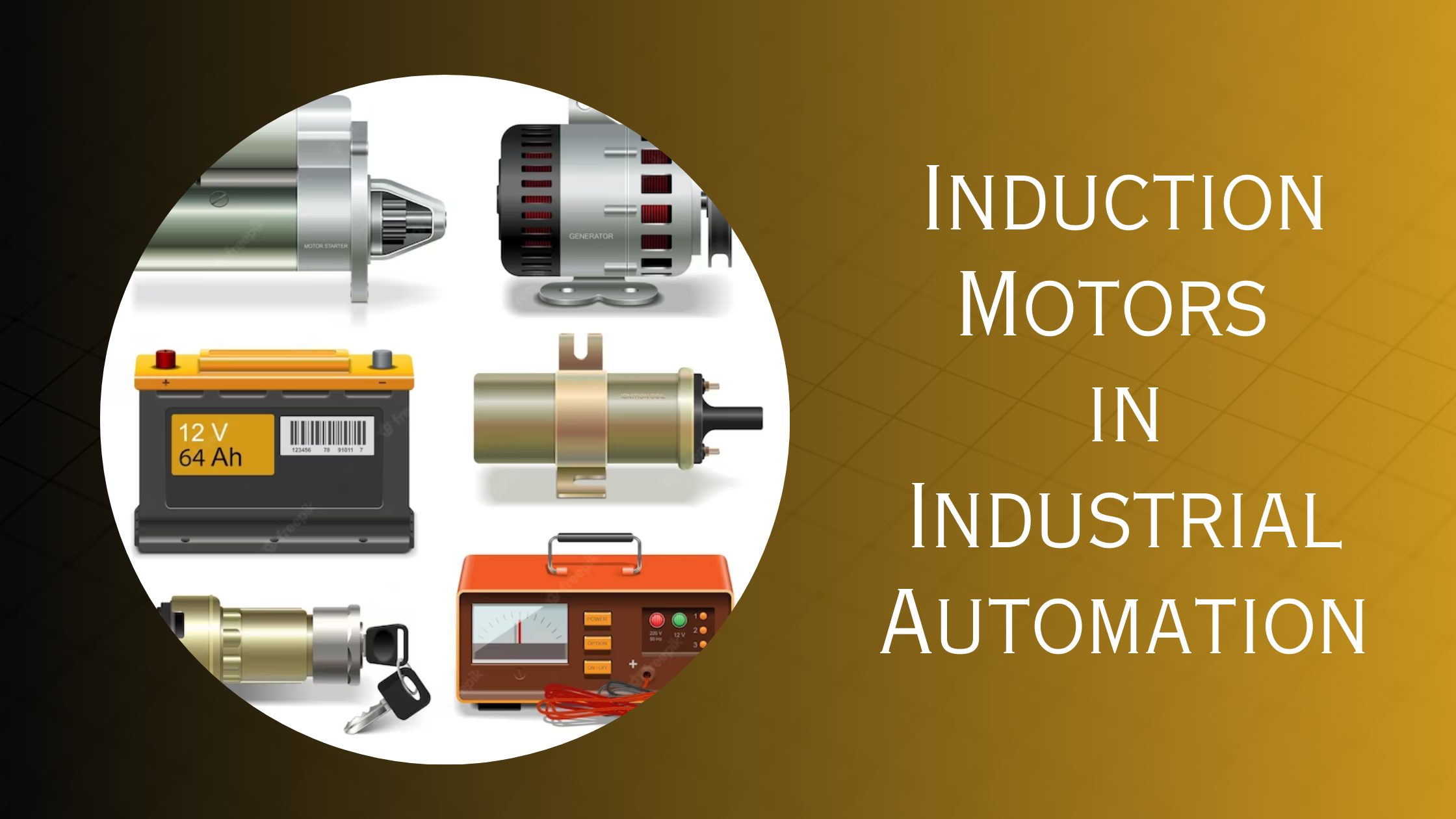The Role of Induction Motors in Industrial Automation: Applications and Benefits
In the realm of industrial automation, induction motors play a vital role as prime movers for a wide range of machinery. These powerful and reliable electrical devices have revolutionized industrial processes by providing efficient, flexible, and cost-effective solutions. From manufacturing plants to transportation systems, induction motors have become indispensable in driving the wheels of automation.
In this blog, we will explore the applications and benefits of induction motors in industrial automation.
Understanding Induction Motors
An induction motor is an electric motor that operates on the principle of electromagnetic induction. It consists of a stator, which houses the stationary windings, and a rotor, which carries the rotating windings. When an alternating current (AC) is supplied to the stator windings, it creates a rotating magnetic field. This rotating field induces currents in the rotor windings, producing torque and causing the rotor to rotate. The speed of rotation is determined by the frequency of the supplied current.
Applications of Induction Motors in Industrial Automation
1. Manufacturing and Machinery
Induction motors are extensively used in manufacturing industries for driving various types of machinery such as conveyor belts, pumps, compressors, and fans. They provide reliable and efficient power for continuous operation, enabling mass production and streamlined processes.
2. Robotics and Automated Systems
In the field of robotics and automated systems, induction motors are employed to power robotic arms, assembly line machines, and precision positioning systems. Their ability to provide high torque and precise speed control allows for accurate and controlled movements in these applications.
3. HVAC Systems
Heating, ventilation, and air conditioning (HVAC) systems heavily rely on induction motors to drive air handling units, pumps, and fans. These motors enable efficient air circulation and temperature control in industrial and commercial buildings, improving comfort and productivity.
4. Transportation and Electric Vehicles
Induction motors find significant use in the transportation industry, particularly in electric vehicles (EVs) and trains. They offer high torque density, compact size, and regenerative braking capabilities. Induction motors have played a crucial role in the rise of EVs by delivering efficient and eco-friendly propulsion.
Benefits of Induction Motors in Industrial Automation
1. Reliability
Induction motors are known for their robust construction and long operational life. They have a simple design with no brushes or commutators, reducing the need for maintenance. This reliability ensures uninterrupted operation in industrial automation systems, minimizing downtime and maximizing productivity.
2. Efficiency
Induction motors have high operating efficiencies, typically ranging from 80% to 95%. They convert electrical energy into mechanical energy with minimal losses, reducing energy consumption and costs. The improved energy efficiency of induction motors contributes to sustainable industrial practices.
3. Cost-effectiveness:
Induction motors are cost-effective solutions for industrial automation applications. They are relatively affordable to manufacture, and their widespread availability drives down costs.
Additionally, their longevity and low maintenance requirements lead to further cost savings over their lifespan.
4. Variable Speed Control
Induction motors offer excellent speed control capabilities, allowing precise adjustments to match varying load requirements. By employing variable frequency drives (VFDs) or adjustable speed drives (ASDs), the speed and torque of induction motors can be regulated, optimizing energy consumption and enhancing process control.
Conclusion
Induction motors have revolutionized industrial automation by providing reliable, efficient, and cost-effective solutions across various applications. Their role in driving machinery, powering robotics, controlling HVAC systems, and propelling electric vehicles is integral to modern industrial processes.
With their reliability, efficiency, cost-effectiveness, and variable speed control, induction motors continue to play a pivotal role in advancing automation technologies, contributing to increased productivity, reduced energy consumption, and sustainable industrial practices.








